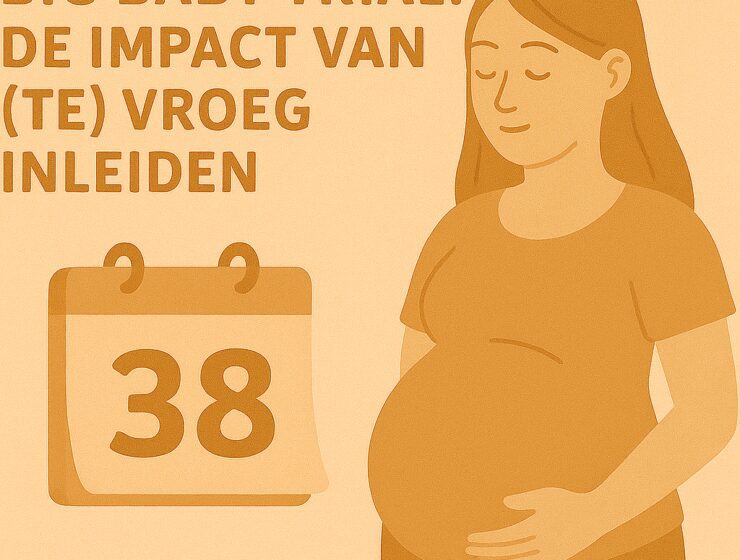Pregnancy and Going on Holiday: Complete Advice
Being pregnant is a special period in your life, full of anticipation and preparation for the arrival of your little one. It may also be a time when you want to enjoy a holiday with your partner or family before your world changes with the birth of your baby. But going on holiday while pregnant requires extra preparation and care. In this blog we give you all the information and tips you need for a carefree holiday during your pregnancy, whether you choose a flying or car holiday.
Flying holidays and pregnancy
![]()
Flying during pregnancy is generally safe up to the 36th week for an uncomplicated singleton pregnancy and up to the 32nd week for a multiple pregnancyHowever, it is essential to discuss this with your midwife beforehand and also check the airline guidelines as these can vary.
Fit to Fly Statement
Some airlines require a 'Fit to Fly' declaration from 28 weeks of pregnancy. This statement, issued by your midwife or doctor, confirms that you are healthy enough to fly. As a midwifery practice, we also provide you with a pregnancy certificate and a pregnancy card, which you must always have with you when you travel. These documents are useful to show during inspections or in case of emergency.
Car holidays: Comfortable and Safe
![]()
When traveling by car it is important to take regular breaks; stretch your legs every two hours to promote blood circulation and reduce the risk of thrombosis. Also ensure sufficient ventilation and a comfortable sitting position during the ride.
Wear a seatbelt
Correct seat belt use during pregnancy is crucial for the safety of both the expectant mother and the unborn child. It is important to know how to position the belt correctly so that it provides protection without putting unnecessary pressure on the abdomen. Here are some safety recommendations for wearing a seat belt during pregnancy:
Positioning of the Belt
- Underbelly: The lap belt should run under your stomach, low over the hips and pelvis. Never place the belt directly over or above your stomach. The idea is to ensure that the pressure in a potential collision is placed on your pelvis and not on your abdomen.
- Chest: The diagonal belt must run between the breasts and over the shoulder; it should not cut across your neck or face. Make sure the belt runs across the side of your stomach, not across the middle.
Safety tips
- Always wear: Even if it is for a short journey, it is important that you always wear your seat belt. Statistics and studies show that wearing a seat belt provides the best protection in the event of an accident.
- Belt tensioner: Make sure the belt is tight enough. A belt that is too loose does not provide the optimal protection that is needed. The belt should be comfortable but fit well.
- Airbags: Airbags provide extra protection and must always be switched on. The combination of airbags and correctly wearing the seat belt provides the best protection.
- Correct sitting posture: Adjust your sitting position to ensure that there is as much space as possible between your stomach and the steering wheel or dashboard. The back of the seat should lean back slightly to reduce pressure on the abdomen, while still allowing you to comfortably operate the steering wheel and pedals.
Following this advice contributes to a safer travel experience during pregnancy. It is essential to always put the importance of safety first. Don't hesitate to ask your midwife or doctor for advice if you have any questions about traveling during pregnancy. Remember that every extra precaution you take contributes to the safety and well-being of both you and your unborn child.
Nutrition and Hydration
![]()
A balanced diet and sufficient hydration are crucial, especially on holiday. Choose light meals rich in fruits and vegetables and drink plenty of fluids (2 liters) to prevent dehydration, especially in hot climates.
Protection from the Sun

Pregnancy makes your skin more sensitive to the sun, making you more likely to develop a pregnancy mask (melasma). Use a high SPF sunscreen, wear a hat and sunglasses, and seek shade regularly.
When to call the Huisartsenpost?
Always take your midwife's contact details with you and inquire about local medical facilities at your destination. Call the doctor's office if there are signs of dehydration, persistent nausea, blood loss, abdominal pain, or if you are concerned about the baby's movements.
Finally
A holiday can be a wonderful way to relax and enjoy your pregnancy. With the right preparation and precautions, you can experience a pleasant and safe trip. Always discuss your plans with your midwife, take your pregnancy declaration and card with you and listen carefully to your body. This way you can fully enjoy this special time.
Going on holiday while pregnant does not have to be complicated, as long as you are well prepared and take the necessary precautions. It's a chance to enjoy and relax before your life is enriched with the arrival of your new family member. Safe travels and enjoy every second of your adventure!








